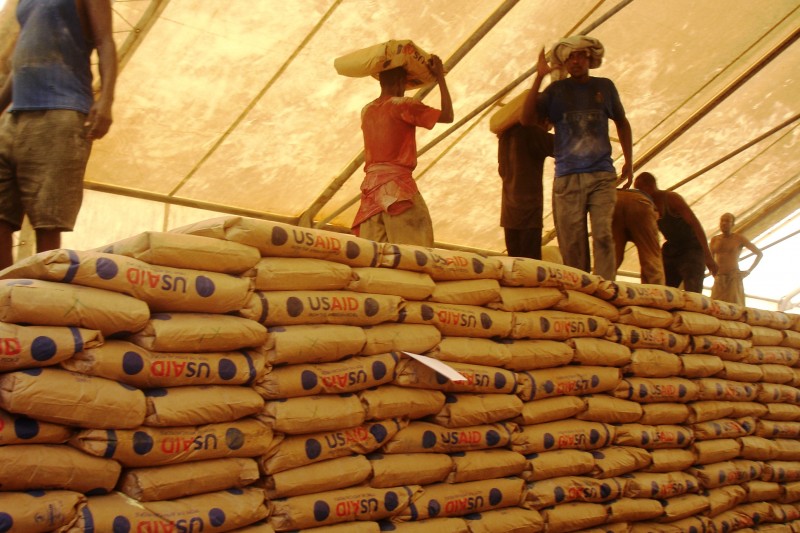Ethics and Experimentation in Foreign Aid
In Kenya, a grand experiment in a radical approach to foreign aid and poverty alleviation is about to get underway. Instead of the predominant approach to foreign aid of providing in-kind donations to poor people (such as housing, food, and health care), the charity Give Directly plans to give money directly to poor people with no strings attached. The concept of a universal basic income (UBI) behind the charity’s experiment “is a specific type of cash transfer” that is “unconditional,” “universal,” “enough to cover basic needs,” and “guaranteed for a recipient’s lifetime.” Critics of UBI claim that recipients will waste the money they receive on things like alcohol, or will stop working because of the new income. Give Directly wants to test these claims to build evidence for UBI as a more efficient and effective approach to poverty alleviation.
To that end, they have proposed a large-scale and long-term experiment in Kenya. There will be four groups in this experiment. One group of villages will receive monthly cash transfers for 12 years. Another group of villages will receive the monthly cash transfers, but only for two years. A third group of villages will receive a lump sum payment equivalent to the value of the monthly cash transfer for two years. The fourth and final group, the control group, will receive no cash aid at all.
This experimental design has sparked some ethical controversy, as many experiments with human subjects in the developing world often do. Many of these concerns were recently raised in response to a series of posts on Give Directly’s efforts on NPR’s Goats and Soda blog. Most of these concerns are nothing new, as human experimentation in the medical field has touched on them now for decades. One main difference is that, as law professor Miguel de Figueiredo noted, field experiments in economics studying poverty solutions only began in earnest in the 2000’s. As such, the field of poverty research has not built up the kind of institutional structure to deal with ethical issues in experimentation as the medical fields have.
A primary ethical concern for research conducted in developing countries is the possibility of exploitation. Bioethicist Ruth Macklin provides the following definition of exploitation: “Exploitation occurs when wealthy or powerful individuals or agencies take advantage of the poverty, powerlessness, or dependency of others by using the latter to serve their own needs (those of the wealthy or powerful) without adequate compensating benefits for the less powerful or disadvantaged individuals or groups.” Give Directly’s UBI study does not clearly fit this definition of exploitation, though some aspects of the study seem worrisome in light of it. The potential for exploitation exists given the power differential between the researchers (individuals and organizations in the affluent developed world) and the study subjects (Kenyans who live in extreme poverty). To some degree, the study is taking advantage of these individuals’ life situations. It is their poverty, after all, that gives the impetus for this study. In addition, it is possible that their predicament of extreme poverty makes them more likely to accept any promise of aid without subjecting the offer to critical scrutiny.
But it does not seem that Give Directly is only trying to serve their own needs. The study does not appear to offer Give Directly financial benefit, as it may if Give Directly was a pharmaceutical company testing a new drug. Given its mission of poverty alleviation, the study does seem calibrated to benefit the communities participating.
The most difficult, and perhaps most significant question is whether the participants in the study are receiving adequate compensation. The control group, remember, appears to receive no kind of direct compensation at all. Note that the design and purpose of the study rules out in advance monetary compensation for the control group, as the study’s aim is to measure the effects of monetary aid to the extremely poor. Moreover, it is not as if the control group does not participate in the study. In order to draw the comparisons, researchers will have to collect data from them. As an important caveat, I have not seen any detailed description of the study’s design, and it is possible that the study design includes some kind of compensation for the members of the control group. Answering this question would be important for a full assessment of the ethical permissibility of this study.
If we step back from the experimental aspect of Give Directly’s actions and focus on the fact that it is charity, one might question whether the concern for adequate compensation of the control group is well-placed. What could be morally wrong with a charity willingly providing money to needy people in Kenya? Charitable giving always ends up going to some needy people and not to others. Just because it is framed as an experiment does not change this basic fact. Is it wrong that I donate $20 to one charity, thus helping some people, and not to another charity, thus not helping that other group? If it were, the whole notion and practice of charitable giving would be rendered unethical. That is absurd.
I focused on one ethical aspect of this interesting social experiment. Other aspects, such as the potential unintended consequences of giving so many people money, are also in need of consideration. For example, will such direct aid cause fluctuation in prices in the local economy? Will this negatively affect those not receiving the aid? As anti-poverty organizations continue to experiment with new models for alleviating poverty, and researchers attempt to help them understand the results of their efforts, ethical analyses into the contours and consequences of these studies will be needed.





